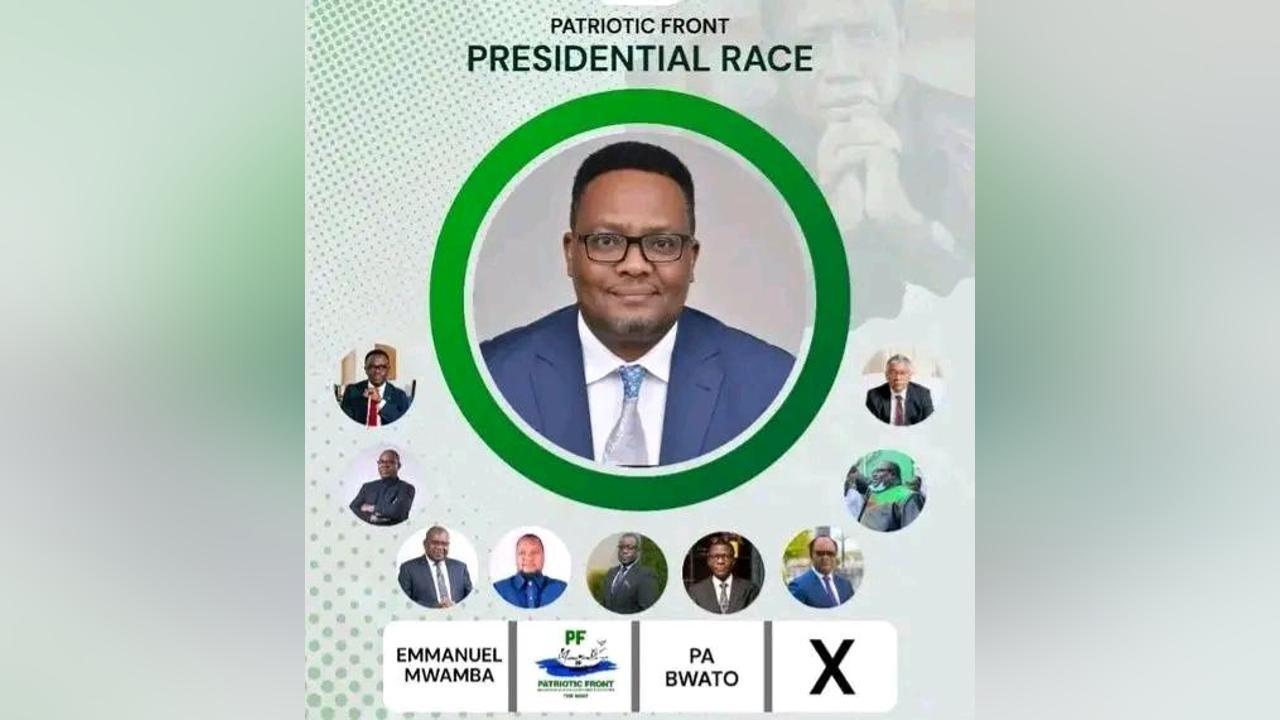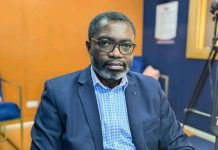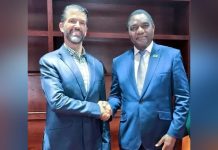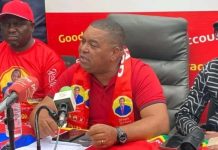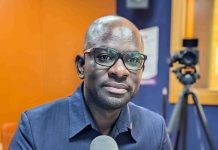Africa-Press – Zambia. Emmanuel Mwamba sits at a strange intersection of Zambian politics. He is everywhere and nowhere at the same time. His Facebook interviews and Podcast travel across the country faster than most radio signals, but he remains in self-imposed exile in the United States. He is mocked by PF insiders as “the online presidential aspirant,” yet his influence inside bureaucratic and political networks is much deeper than many admit.
He is a Bemba politician with no clear grassroots base in Muchinga, Northern or Luapula, but he still commands curiosity within PF’s old guard and parts of the civil service.
Born in Luanshya in 1971, Mwamba built his career not through electoral battles but through the state machinery. He moved from provincial Permanent Secretary roles to the Ministry of Information, then to foreign service appointments in South Africa and later Ethiopia as ambassador to the AU and UNECA.
Those who have worked with him describe a sharp, strategic and disciplined administrator. Those who oppose him describe a skilled propagandist who is good at leaking information and twisting narratives. Both views capture the same truth: Mwamba knows how communication shapes power works behind curtains.
His fear of returning to Zambia, he has said repeatedly that he expects arrest on arrival, has shaped his persona in exile. He casts himself as a persecuted voice, a political commentator speaking from a safe distance. Outside PF structures, his critics see him as manipulative, selective with facts and too comfortable fuelling controversy.
Inside PF, his support is thinner than the noise around him suggests. PF delegates and cadres prefer candidates who can mobilise boots on the ground, not just views on Facebook. Mwamba lacks the classic machinery: he does not have the ward networks, the constituency teams or the provincial anchors.
His appeal lives mostly in political WhatsApp groups, in civil service corridors, and in elite circles where information leaks and rumours have currency.
Yet this is precisely his strength. Mwamba has a deep network that cuts across ministries, former diplomats, senior technocrats and political operatives. He understands statecraft in a way few PF aspirants do. He knows the technical side of governance, the bureaucratic pulse, the regional diplomacy language and the strategic messaging game.
Mwamba is not charismatic enough to shake a rally, but he is influential enough to shape narratives. This makes him dangerous to ignore and difficult to categorise.
If PF were selecting a technocrat-president, Mwamba would be a frontrunner. But PF is not that party. Delegates reward visibility, region and mobilisation. The current PF race is dominated by candidates with either a strong Northern circuit–Luapula axis or Eastern enclave alliances. Practically, Mwamba sits outside both circles. He has no clear electoral base. He has no mass following on the ground. His influence is elite, not grassroots.
Even his Bemba identity does not automatically translate into delegates because the PF Bemba bloc is already split between aspirants who command ground structures.
Still, Mwamba’s political future is not dead. If PF fractures further, he could cast himself as the stabiliser, the bridge, the clean pair of hands between hardline factions. His exile narrative could morph into a martyr story. His diplomatic experience could become a selling point for a party that appears lawless and chaotic. And his media presence could become a megaphone for whichever faction he aligns with. He may not be a winning candidate today, but he is certainly a strategic player.
In the end, Emmanuel Mwamba’s relevance does not rest on crowds shouting his name. It rests on how much influence he still wields in the shadows of the state, how many political networks he can activate from abroad, and how desperate PF becomes for a unifying party communication if the internal war escalates.
Mwamba is not the PF favourite. He is not the grassroots choice. But in Zambia’s unpredictable opposition politics, even an exile can become a contender if the party collapses inward and needs a steady hand.
Whatever the case, Mwamba is a powerful commentator, a skilled propagandist, and a respected former diplomat with real networks but weak electoral grounding.
His candidacy is unlikely to catch fire among PF delegates, but his influence remains significant, especially if PF enters a crisis where communication, negotiation and elite coordination matter more than raw mobilisation.
Next in The Candidates: Populists, pragmatists, and the dark horses redefining Zambia’s 2026 battle.
For More News And Analysis About Zambia Follow Africa-Press


